2025 EU Prize for Women Innovators: Celebrating women at the forefront of European innovation
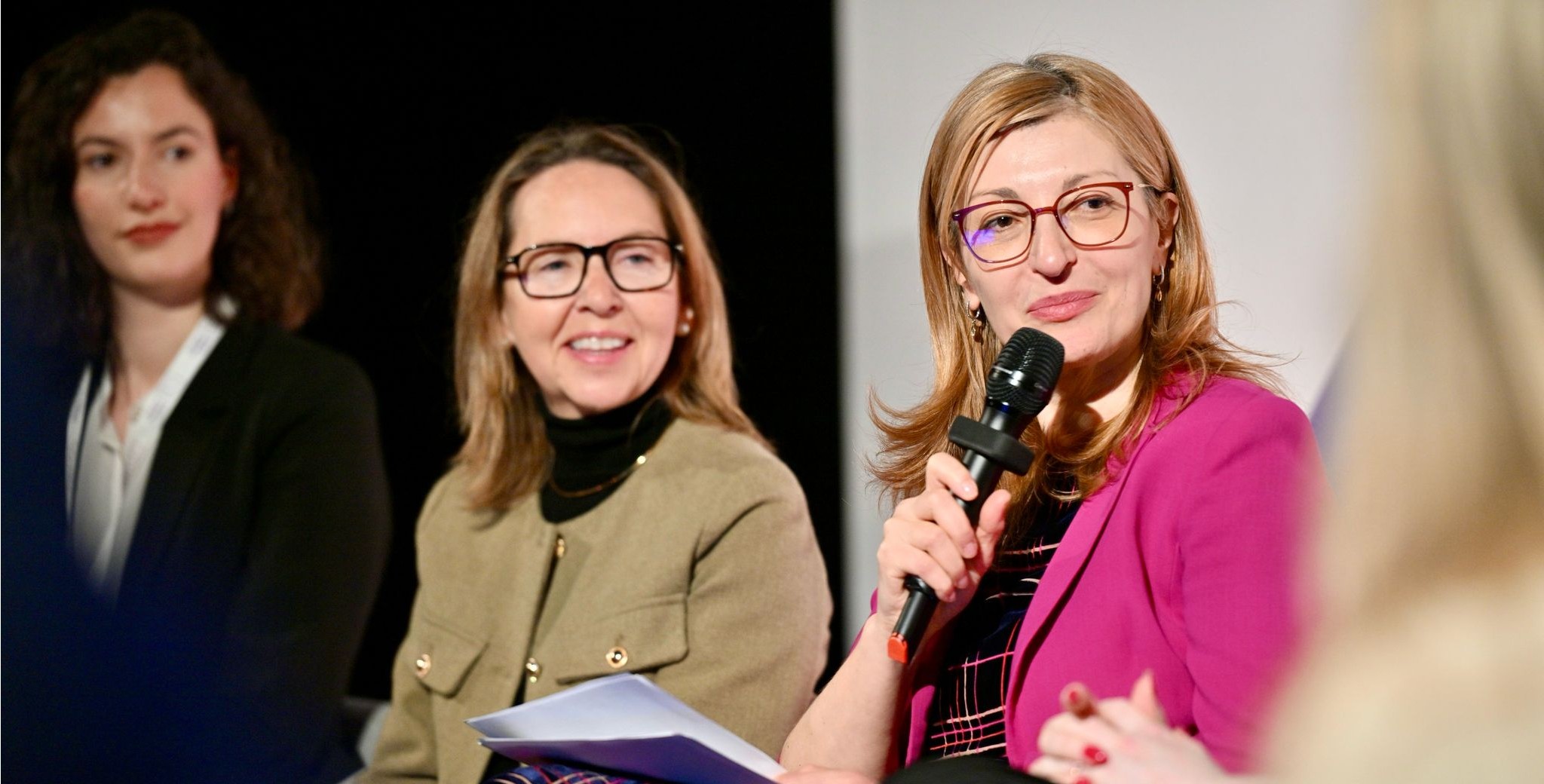
The European Innovation Council (EIC) Summit in Brussels brought together over 1,400 people to discuss the future of Europe’s advanced technology. As a jury member for the 2025 EU Prize for Women Innovators, I was particularly impressed by the remarkable talent and dedication of the women celebrated. While the summit offered valuable learning and networking, the award ceremony truly highlighted the creativity and leadership of women driving innovation, solidifying the EIC Summit’s importance for Europe’s innovation agenda.
Now in its 11th year, the EU Prize for Women Innovators highlighted the remarkable achievements of women founders and co-founders throughout the European Union and Horizon Europe-associated countries. These pioneers are not just running businesses; they are transforming markets with groundbreaking innovations. European Commissioner for Startups, Research and Innovation, Ekaterina Zaharieva, aptly stated at the press event: “It’s really important to share the good things happening here in Europe.”
The prize honored great achievements in three categories: Women Innovators, Rising Innovators, and EIT Women Leadership. These categories highlight the diverse stages and pathways of women’s entrepreneurial success.
The vision and impact of ‘Women Innovators’The Women Innovators category recognized experienced women who started companies with solutions that change things.
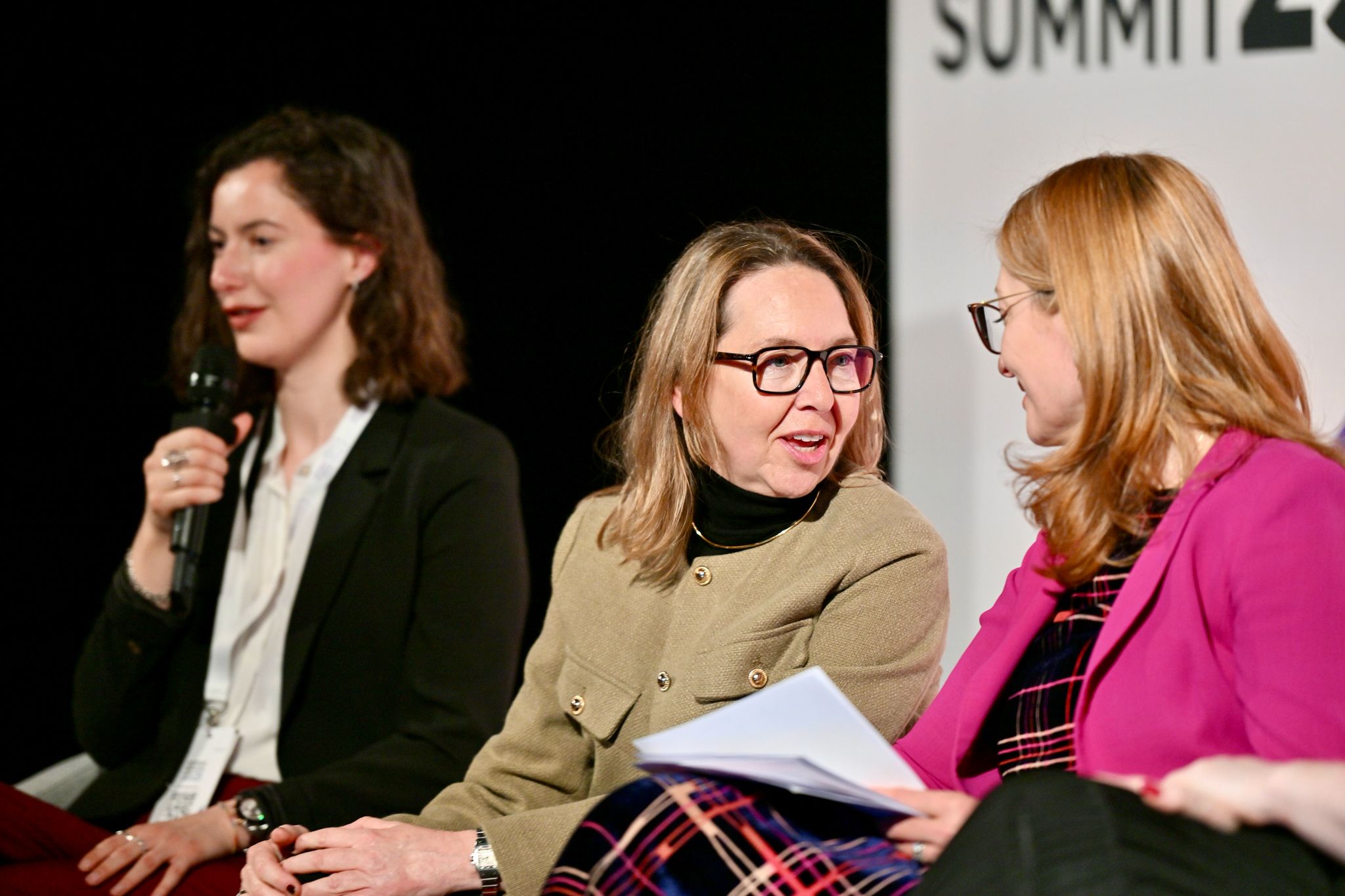 Agnès Arbat, Founder and CEO of Oxolife (in the middle)
Agnès Arbat, Founder and CEO of Oxolife (in the middle)
The winner, Agnès Arbat from Spain, who founded and runs Oxolife, works on a very important part of fertility. She explained that her company “focuses on women’s fertility and is creating the first substance that gets the lining of the womb ready for a successful pregnancy.” This is a big step that could make the emotional and financial stress of infertility much easier.
The runner-up, Rhona Togher from Ireland, the CEO and co-founder of LIOS, is dealing with a problem that affects everyone: noise. She said, “We are changing how the world deals with noise.” She pointed out that the usual materials aren’t as good as their SoundBounce, which is also better for the environment and will help make things quieter and more sustainable.
Another runner-up, Fanny Bardé from France and Belgium, who co-founded and runs SOLiTHOR, is leading the way in the future of how we store energy. She stressed how important her company’s batteries could be, saying, “Changing transportation with next-generation batteries will have a huge positive effect on the planet,” really helping to make the future greener.
‘Rising Innovators’ with bold ideas and potentialThe Rising Innovators category showed how energetic and creative young women starting businesses can be.
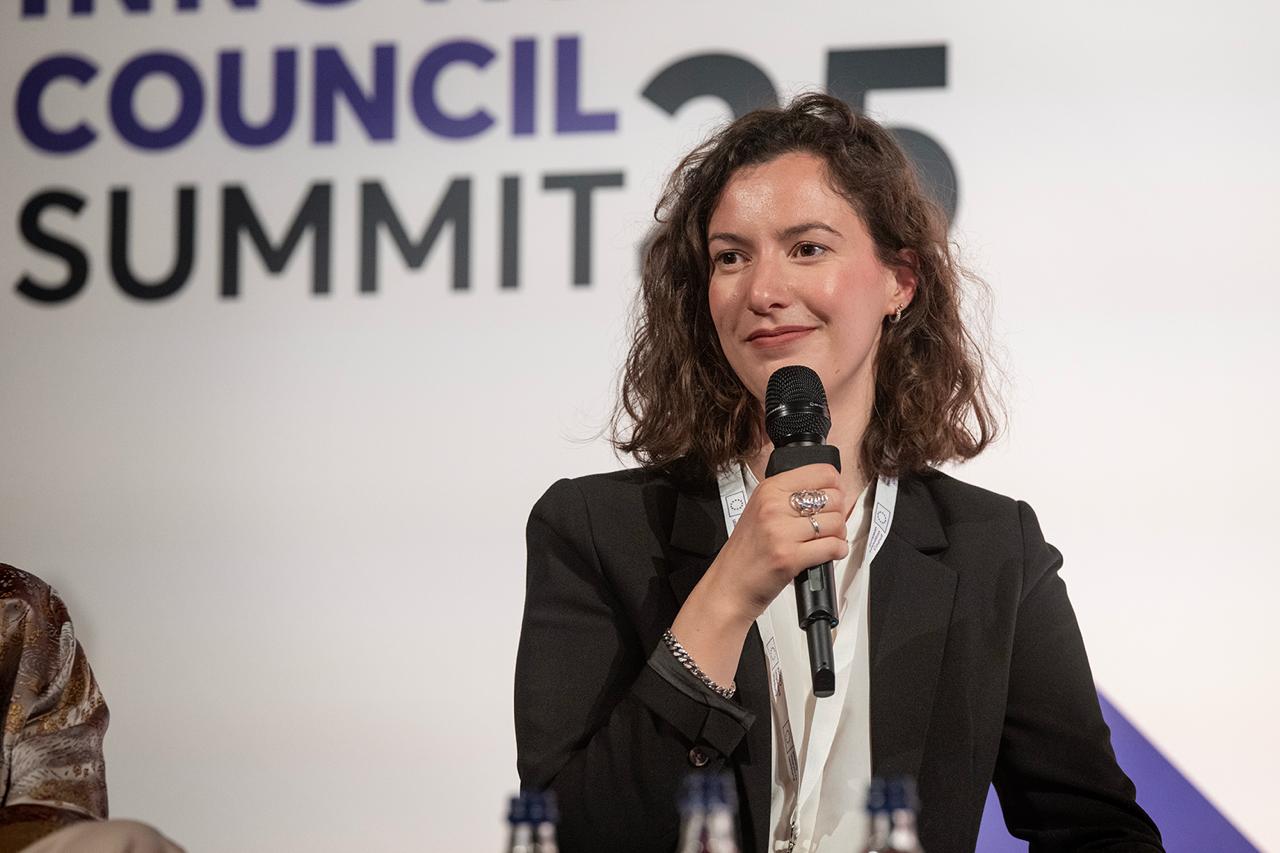 Camille Bouget, co-founder and CEO of Scianta Lab
Camille Bouget, co-founder and CEO of Scianta Lab
The winner, Camille Bouget from France, who co-founded and runs Scienta Lab, is using artificial intelligence to make big changes in how we treat long-term illnesses. Her goal is to “figure out how the immune system works in detail” so that treatments can be better and made just for each person.
The runner-up, Claudine Adeyemi-Adams from the United Kingdom, who founded and runs Earlybird, is using what she went through herself to create technology that helps people. She said, “I’m coming up with this solution and building it because I used to be someone who needed help.” She stressed that her AI system could improve job support and help people find meaningful work.
Héloïse Mailhac from France, who co-founded and runs STH BIOTECH, is finding new ways to use rare plant substances called cannabinoids for medicine. She explained, “Our aim is to find all the different cannabinoids and create a collection of them that we can use to help with health,” pointing out how much potential there is in the cannabis plant that we haven’t used yet.
Recognizing leadership within the EIT communityThe EIT Women Leadership category honored women making a big difference within the EIT community.
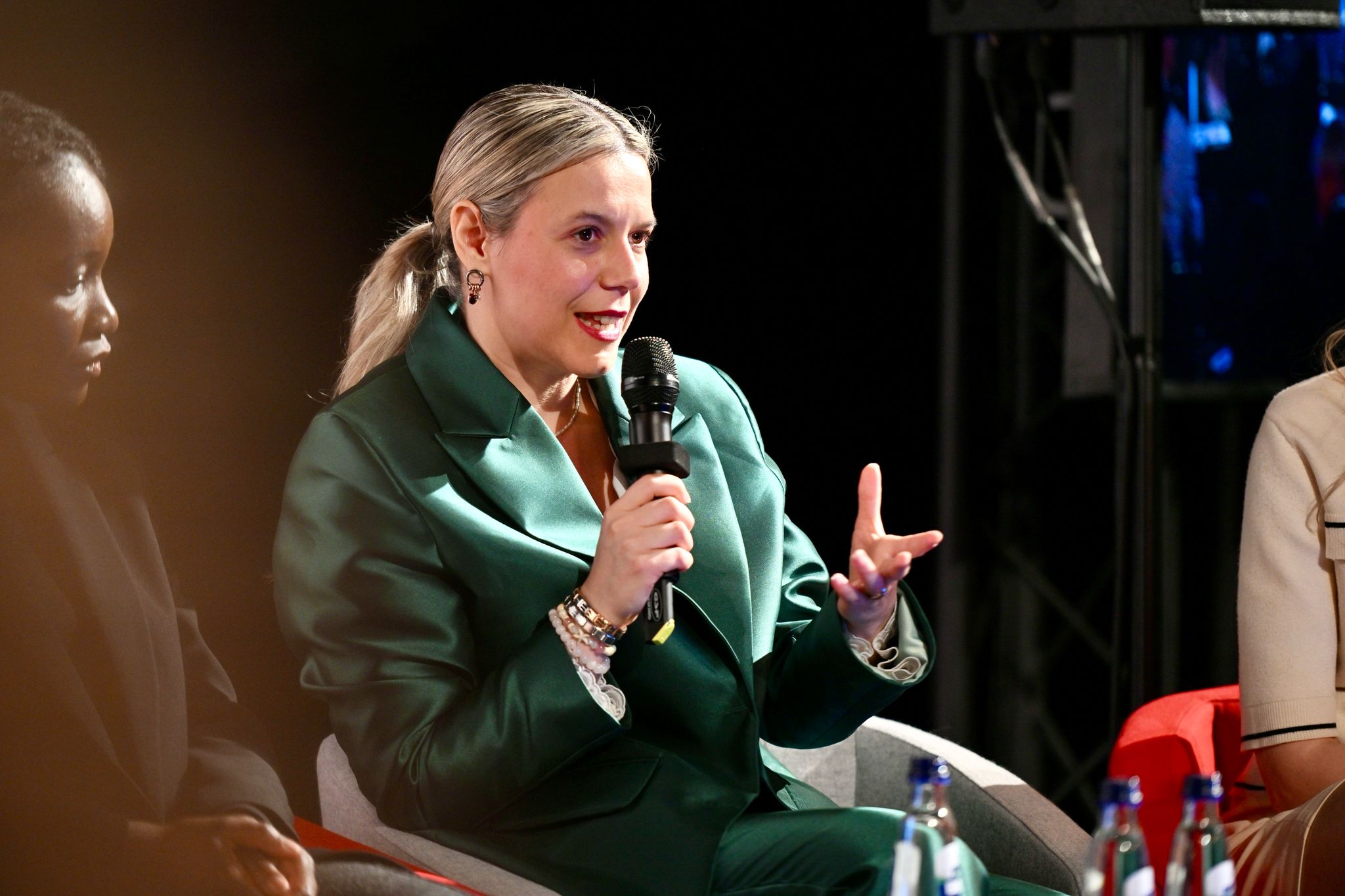 Débora Andreia Campelo Campos, founder and CEO of AgroGrin Tech
Débora Andreia Campelo Campos, founder and CEO of AgroGrin Tech
The winner, Débora Andreia Campelo Campos from Portugal, who founded and runs AgroGrin Tech, is a big supporter of making the food industry more sustainable. She said, “We completely reuse all the waste that comes to our company,” highlighting their new way of turning leftover fruit into useful ingredients, which cuts down on waste and creates new ways to make money.
The runner-up, Olesja Bondarenko from Estonia, the CEO and co-founder of Nanordica Medical, is working on a very important health problem: how to treat wounds using tiny technology called nanotechnology. She pointed out that their goal is to help “hundreds of millions of patients” who have long-lasting wounds, which could mean fewer people need to have limbs removed and can have a better quality of life.
Elizabeth McGloughlin from Ireland, who co-founded and runs Tympany Medical, is trying to improve the results of surgeries by creating new medical devices. She explained that they’ve developed a special endoscope that helps doctors see better and work more efficiently, ultimately leading to better patient care.
A glimpse behind the jury’s decisions and the commissioner’s visionAs a jury member, I was deeply impressed by the remarkable caliber of all the nominees. They were incredibly smart, and their new ideas, in different areas, were matched by how they saw their goals and how strongly they were committed to them. They were all trying to solve big problems in creative and determined ways, which was truly inspiring. It also showed how carefully we had to evaluate everyone to choose the winners of these important awards.
Commissioner Ekaterina Zaharieva pointed out the importance of recognizing and helping women with new ideas. She said, “We have many plans and programs, and I’ve thought a lot about encouraging more women to get involved, because there’s still a big difference between the number of men and women.” She admitted that there are still challenges but highlighted the good work the EIC is doing: “30% of the companies we’ve helped are run by women, which is much higher than what you usually see.”
 European Commissioner for Startups, Research and Innovation, Ekaterina Zaharieva (on the right)
European Commissioner for Startups, Research and Innovation, Ekaterina Zaharieva (on the right)
About the EU Prize for Women Innovators, Commissioner Zaharieva stressed how much of a difference it can make: “I think these awards will lead to change, and I’m counting on you to share these positive stories, which I hope will also make investors more confident. Please take this chance to introduce these incredible women, each with their own inspiring story, to your readers and listeners. I am so proud to be among them.”
This important prize not only celebrates what these women have already done but also sends a strong message to people who invest money, which could help these groundbreaking companies get the funding they need to grow.
Addressing the funding imperative for growthGetting funding for new and innovative businesses was an important topic of conversation. Commissioner Zaharieva pointed out that there’s still a gap in funding and that getting more investment from private companies is really important. She said, “We still need investment from the private sector. We don’t have enough big venture capital firms, and we need them if we want our innovative companies to grow.”
When asked whether pension funds could help, Commissioner Zaharieva explained, “A big part of how people save and invest money involves getting large investors like pension funds to put their money into these companies.” She talked about what the Commission is doing to make it easier and more appealing for these big investors to invest more. She said, “Without them [institutional investors], we’ll unlikely see more big venture capital firms in Europe.”
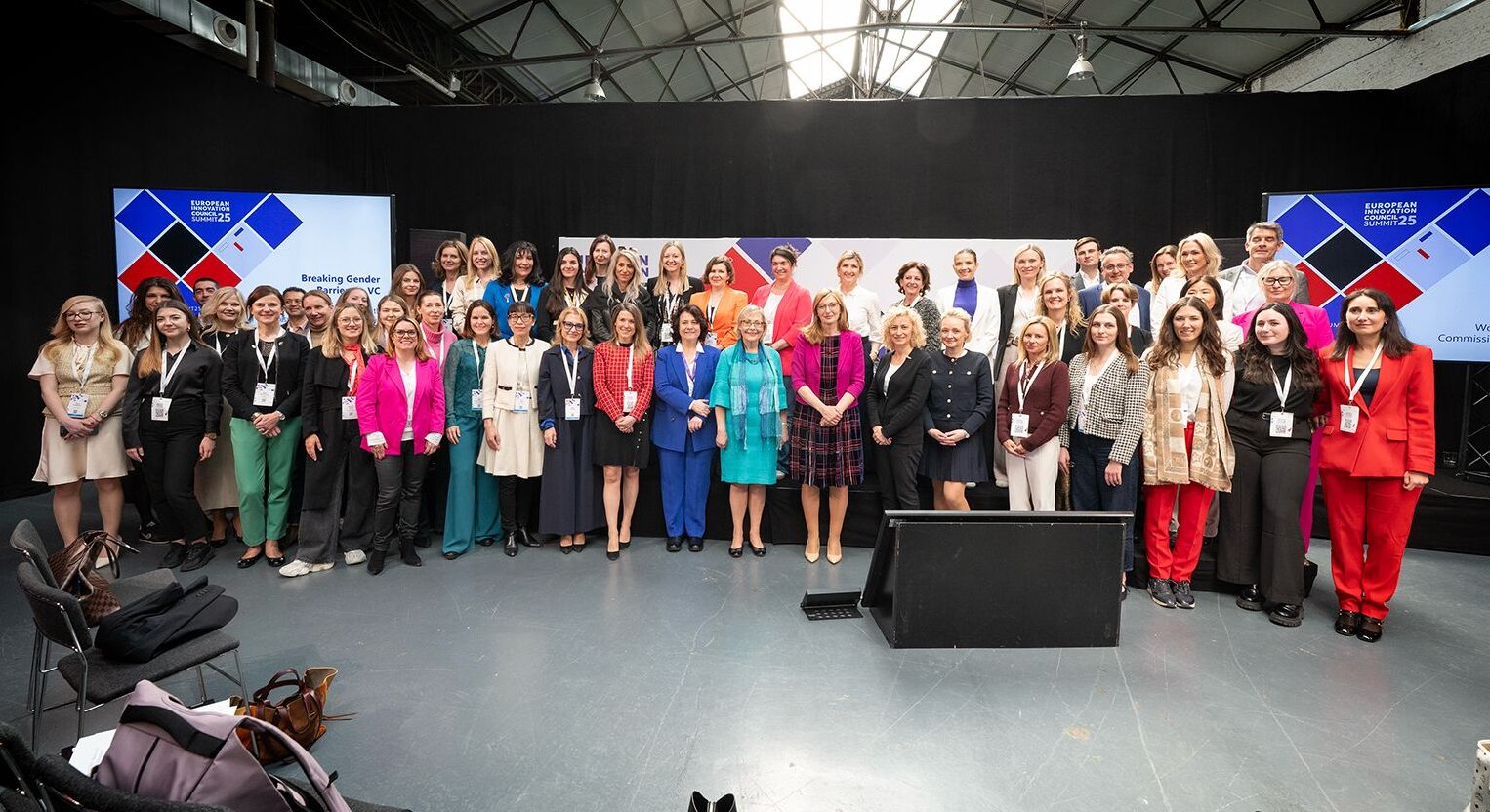
The 2025 EU Prize for Women Innovators event at the EIC Summit was powerful and made a big impression. It didn’t just celebrate the amazing things these individual women had done; it also showed how important it is for women to be leaders in coming up with new ideas and shaping the future of Europe. Their inspiring stories, their strong dedication, and their new and important work, all highlighted by this respected prize and the support of organizations like the EIC, remind us that supporting diversity and treating everyone equally isn’t just about fairness – it’s a key ingredient for a successful and competitive economy in Europe. As Commissioner Zaharieva so well put it, by showing the world the work of these extraordinary ladies, we can inspire the people who follow us and build a Europe that’s more open to everyone and better at creating new things.
Empowering the next wave of women innovatorsBesides giving awards to women who are already leaders, the European Union is also actively helping women who will be the future tech leaders through programs like Women TechEU. In our chat at the EIC Summit, Teresa Hernandez, who leads Women TechEU, explained, “Women Tech EU is a project funded by the EU for women who are starting tech companies. This project, which will last two years and is supported by the Horizon Europe program, wants to help women in charge of new, advanced technology companies in Europe by giving them important resources and opportunities.”
 Teresa Hernandez, Women TechEU Lead
Teresa Hernandez, Women TechEU Lead
The program offers a full package to help these businesses grow. This includes a direct grant of €75,000 to help with the first steps of developing new ideas and growing the company. Also, Women TechEU provides really helpful advice and support through the EIC Business Acceleration Services’ Women Leadership Programme, which includes events for meeting people and practicing presentations. The women also get to work with InvestEU and the Enterprise Europe Network.
The business needs to be started by a woman in a top management role (like a C-level position) and working on advanced technology to be part of Women TechEU. Teresa Hernandez pointed out a big need for this kind of help: “First of all, there’s a need for money for women… the number of women asking for help keeps growing. Even though many people apply, the quality of the businesses is very high. When we choose from so many people, the ones we pick are very good. Their ideas are great.”
Women TechEU also knows it’s important for these women to get noticed and to grow in the long run. Teresa Hernandez said, “One of our goals is to make them more visible so they can become role models for younger women or other women.” While the first grant is a good start, she also knows that tech companies often need a lot more money: ‘We give them 75,000 euros, but when talking about tech, they need much more… it’s just the beginning. But at least it’s something.”
The next window you can apply for Women TechEU is starting on June 1st. This will be another chance for promising tech companies led by women to get the funding, advice, and community they need to succeed.
